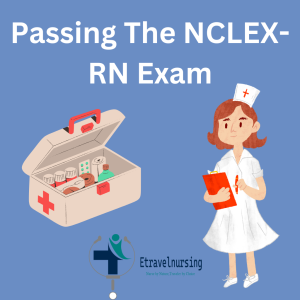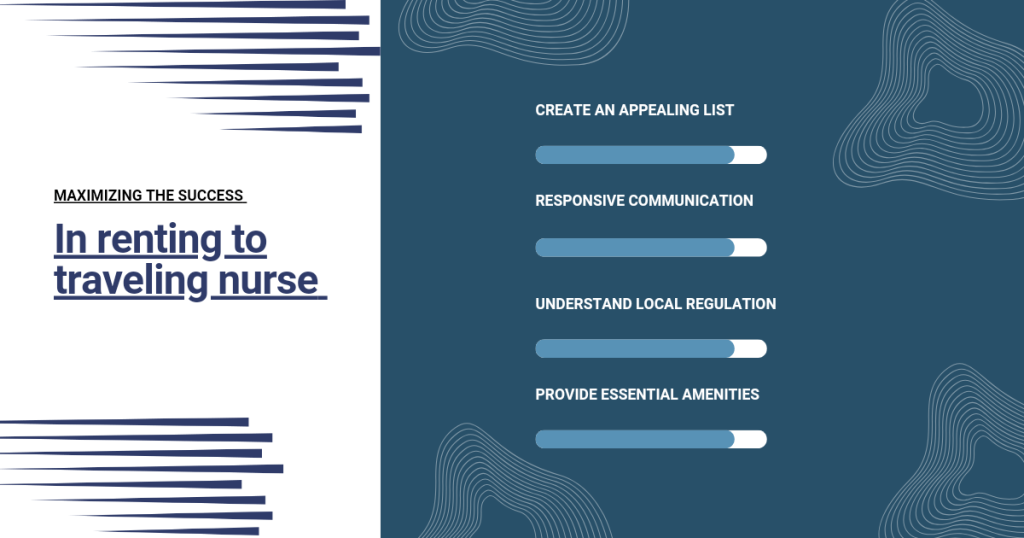How Many Years of College to Be a Travel Nurse?
Navigating Education: How Many Years of College to Be a Travel Nurse?
Aspiring travel nurses often wonder about the educational path ahead, specifically: How many years of college does it take to be a travel nurse?
Embarking on a career as a travel nurse is an exciting journey that requires a solid foundation in nursing education.
In this comprehensive guide, we will navigate through the educational requirements, academic milestones, and considerations that shape the journey toward becoming a travel nurse.
The Basics: Understanding the Educational Pathway
1. Earning a Nursing Degree

The primary step on the path to becoming a travel nurse is earning a nursing degree. The most common options include an Associate Degree in Nursing (ADN) or a Bachelor of Science in Nursing (BSN). The choice between these degrees often depends on individual career goals and the level of education desired.
2. Associate Degree in Nursing (ADN)
An ADN program typically takes about 2 to 3 years to complete. This degree provides a foundational education in nursing.
It qualifies graduates to sit for the NCLEX-RN exam, a standardized test that must be passed to become a licensed registered nurse.
3. Bachelor of Science in Nursing (BSN)
Opting for a BSN involves a more extensive educational journey, typically lasting 4 years. BSN programs offer a broader scope of coursework, including additional classes in leadership, community health, and research.
A BSN is increasingly becoming the preferred choice for many healthcare facilities and can enhance career opportunities for travel nurses.
Gaining Licensure: The NCLEX-RN Exam
4. Passing the NCLEX-RN Exam

Regardless of the chosen degree path, the next critical step is passing the National Council Licensure Examination for Registered Nurses (NCLEX-RN). This standardized exam evaluates the graduate’s readiness to practice as a registered nurse and is a mandatory requirement for licensure.
5. Acquiring State Licensure
Upon passing the NCLEX-RN exam, graduates must obtain licensure from the state in which they intend to practice. Each state has its nursing board, and requirements may vary. Travel nurses often secure licenses in multiple states to expand their job opportunities.
Transitioning to Travel Nursing
6. Gaining Clinical Experience
Before venturing into travel nursing, it’s beneficial to gain clinical experience in various healthcare settings. Many travel nursing positions require a minimum amount of professional experience, typically ranging from 1 to 2 years.
Clinical experience not only enhances skills but also makes nurses more competitive in the travel nursing job market.
7. Considering Specializations and Certifications
Travel nurses can enhance their qualifications by pursuing specializations or certifications in specific areas of nursing.
Certifications in critical care, emergency nursing, or other specialties demonstrate expertise and open doors to specialized travel nursing assignments.
Tailoring Education to Career Goals
8. Pursuing Advanced Degrees
Some travel nurses choose to pursue advanced degrees, such as a Master of Science in Nursing (MSN) or a Doctor of Nursing Practice (DNP).
Advanced degrees can lead to roles in advanced practice nursing, nurse education, or healthcare leadership. While not required for travel nursing, advanced degrees can provide a broader range of career options.
9. Continuing Education Credits
Continuing education is a crucial aspect of a travel nurse’s career. Many states and healthcare facilities require nurses to maintain a certain number of continuing education credits to renew their licenses.
This ongoing learning ensures that travel nurses stay current with advancements in healthcare.
Navigating the Variable Pathways
10. Individual Variances in Education Timelines
It’s essential to note that the time it takes to become a travel nurse can vary based on individual circumstances.
Factors such as part-time or full-time enrollment, prior education credits, and personal commitments can influence the overall timeline. Flexibility in education pathways allows individuals to tailor their journey to their unique circumstances.
11. Bridge Programs for Career Advancement
For those who start with an ADN and later wish to pursue a BSN or advanced degree, bridge programs offer a streamlined pathway.
These programs recognize prior nursing education and experience, allowing nurses to advance their education without starting from scratch.
Conclusion About How Many Years of College to Be a Travel Nurse?
In conclusion, the path to becoming a travel nurse involves a combination of educational milestones, licensure requirements, and ongoing professional development.
The number of years it takes to be a travel nurse is influenced by individual choices, educational pathways, and career goals.
Whether pursuing an ADN, BSN, or advanced degree, aspiring travel nurses have the flexibility to craft an educational journey that aligns with their aspirations and sets the stage for a rewarding and dynamic career in travel nursing.


